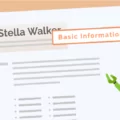Follow this guide to help you craft a professional veteran’s resume to highlight your skills and experience for a post-military career.

Land a Fantastic Role as a Veteran This Year
Best Jobs for Veterans
As veterans look for post-military careers and seek to re-enter civilian life, many are challenged to find the right wording to highlight their transferable skills. You need to find a way to share your experiences in a way that hiring managers can see how they will benefit the job role. The good news is that there are plenty of civilian jobs and civilian careers where military experience and the associated skill set will be a huge asset. Military skills gained on active duty will be valuable in your new career, with several career paths open to you. However, you’ll need to first create a professional resume that demonstrates your value to a recruiter.

How to Write a Veteran Resume
Service members that are transitioning to begin a career as a civilian, will need to write a new resume. The steps are similar to any job seeker looking for job opportunities. The challenge for military veterans is to draw the line for recruiters to follow how the military job can be transferred to the new civilian job role.
Select a Resume Format
When selecting a resume format, you have options. You can choose a functional resume, a chronological resume or a combination resume.
The functional resume emphasizes the skills you have gained through your career, while the chronological resume puts your work history first in reverse chronological order. The combination resume combines elements of the two. All three formats could work depending on what you want to highlight as your strengths. Remember, military members have plenty of transferable skills for many professions, so all three formats could benefit your job search.
Share Your Contact Information
Always share your contact information in the header. This enables the hiring manager to contact you easily about your job application. You should include your full name, location, phone number and links to any job networking profiles such as your LinkedIn profile.
Regardless of your chosen format, you’ll need to include a skills section, an education section and a work experience section.
Skills
Military service comprises a wide variety of roles, from the air force to cybersecurity or supply chain management. Whatever your role, there will be many skills you can highlight to increase your employment opportunities.
Military personnel often have the following skills:
- Leadership skills
- Organizational skills
- Interpersonal skills
- Time management skills
These soft skills are in addition to the various technical hard skills you have depending on your area of expertise. Whenever you list your skills, make sure to read the job description of the role you are applying for to ensure you only list relevant skills.
Education
Through your career in the armed forces, you will have gained relevant qualifications that you can list in your education section.
Often, these will be specific qualifications related to a similar civilian role that you were performing in the military. For instance, you may be a military nurse looking to apply for a civilian healthcare role, or you may be an IT specialist looking to transition to the private sector of information technology. Whatever certifications you gained in the military, list these in a way that makes sense to a non-military professional, but only if they are relevant to the advertised role.
Work Experience
List the roles you had in the military in reverse chronological order. The key here again is to relate your experiences and skills to match the civilian job.
Security Clearance Certificate
When you complete your military career, you get a security clearance certificate. The document can be submitted to the security department of the corporation where you apply. Include your security clearance certificate in your resume.
You can use our resume builder, resume templates and resume examples to help you craft your professional resume. The key thing to remember is to understand that your skills, experiences and qualifications will be valuable to many workplaces.
But, what companies are most likely to hire veterans? Let’s look at the best areas for veterans to enter the civilian workforce.
Best Jobs for Veterans
First off, there are many military roles that have direct counterparts in civilian life. Electricians, nurses, human resources professionals, information security roles, aerospace engineers, truck drivers and many other military jobs should easily be able to transition to civilian roles and federal jobs.
If you didn’t have a specialist role in the military, then your set of skills can still lead to a wide array of roles. Many veterans are excellently placed to land roles in law enforcement as police officers or in other security positions.
The nature and discipline of military life mean veterans often have a keen eye for efficiency and processes, meaning that many opt for a career in project management, in logistics as an operations manager or in other supply-chain-related jobs.
During your job search, there are many specialist military-friendly job boards and initiatives that cater specifically to veterans.
Veterans can contact the department of veteran affairs for assistance and veterans' employment advice.
Whatever your previous military experience, rest assured there are plenty of career opportunities available to our former armed services members.








